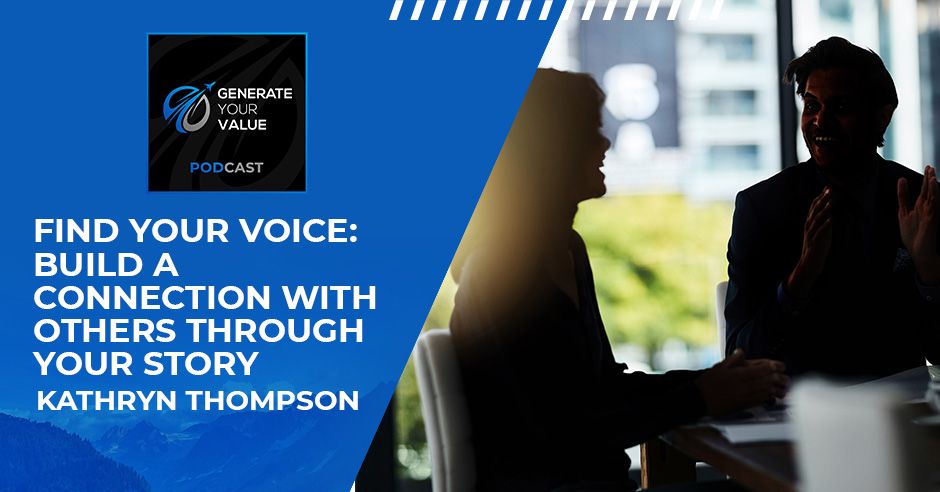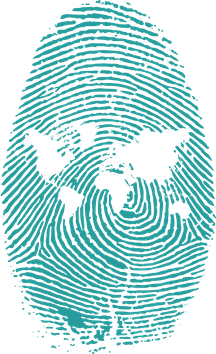Establishing a connection with clients will keep them buying your product or service. But how can you connect with them? It is through the story you tell them. In this episode, Kathryn Thompson, a Canadian-based entrepreneur, will inspire you to find your voice in your stories to create change in your life, business, and the world. She explains how a story is essential in generating value for your brand. Kathryn also discusses how AI shaped many industries and how it contributes to branding. Let’s generate more value with our storytelling and tune in to this insightful episode today.
Instagram: @creativelyowned
Podcast: BE the Sought-After Entrepreneur
Website: Creatively Owned
This is the last episode of Season 3. I feel like we just started our journey on this season. There were so many tremendous guests and great topics that we’ve been able to cover this particular season. I sat on my couch and scratched my head going, “How are we going to finish this season with a bang,” since you guys won’t be getting any new episodes while Zach and I take a rest in our endeavors.
I decided to bring you three high-powered badass women coaches, and I consider them my teammates in changing the world, to help you understand and walk into your greatness and generate your values. The reason why my business is named that name and why this show is called Generate Your Value is that it’s one thing to understand yourself and your life purpose. It’s another thing to step into your greatness and share that with the world, to generate value in the world. That’s what my guest and I are going to talk about.
We talked with Dominey and Aileda about finding your purpose, why that’s important and those types of things. Let’s assume that you’ve done that work or have a good gut feeling as to what your life purpose is. Where do we go from there? “Andy, I found it. Now what?” That’s what we’re going to address in this episode. The last of the three badass coaches is Kathryn Thompson. I’m not going to tell you where she’s from until the very end of the episode.
Let’s have a little game here and see if you can figure out where she is from right down to the region. I won’t say anything more than that. It might be a little bit of a clue to give you the region of the world that she’s from. Here is Kathryn’s bio. I didn’t have the bios of the last two coaches. I’m going to let them and specifically Kathryn, tell her story here in the beginning.
Let me list some of her accomplishments. She is a coach. Her primary focus is other coaches and helping other coaches win their voice and development of their programs. That’s the core of her business. She also opened up a custom winery in a highly saturated market and rose it into the millions in terms of revenues and then sold it with one email.
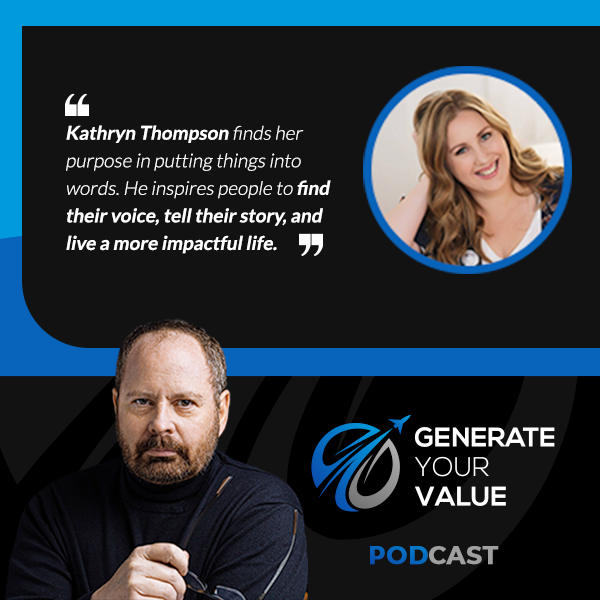
She’s a contributor for Entrepreneur. It’s been featured in New York Weekly, Medium, Yahoo, Thrive Global and a whole bunch more. She’s invested over $100,000 in her education and has a Bachelor’s in Marketing and a Master’s in Communication. She has twenty-plus years of experience in those areas. Hopefully, she’ll tell us a little bit more about those particular pieces. With that being said, Kathryn, welcome to the episode. Thank you for taking that valuable limited resource that you have called time and come invest some of that in our show and share your wisdom.
I should tell the audience that I was on Kathryn’s podcast. That’s how we originally connected. It was a great conversation. At the end of it, in the green room, I said, “You got to come on the mine.” We get along so well that you’ll hopefully see the great chemistry we have in our conversations. Kathryn, welcome to the show.
Thanks, Andy. I’m excited to be here. Yes, we do have good chemistry and conversation. I have the gift of the gab. I was born with it. My purpose is words and putting things into words. I love all of the accolades and the things that you shared. One thing I often joke about is that I’m so much more than the accolades. I want to share a little bit about my story and how I came to do what I do.
I have a Bachelor’s in Marketing and a Master’s in Communications. I spent fifteen years working in corporate. There are probably some readers here that can maybe resonate with that. All along that time in corporate, I knew it wasn’t where I was supposed to be. I was probably in my mid-twenties. I was working in Banker’s Tower downtown. I won’t say because that’ll give away where I’m from. I was working in the financial industry.
I remember sitting in this office thinking to myself, “There’s got to be more to life than going to work every day and doing this.” It took me fifteen years to finally ditch it and open that custom winery where we gross close to $1 million in sales before selling it at the height of COVID when brick and mortar businesses were shut down. We sold it with a single email. Everybody’s always like, “I want to see that email. What did you put in that email?”
I’ve had people reach out to me since who are looking to sell their business going, “Give me the email that you sent to your customers.” I’m like, “You’re going to be shocked.” I don’t want to say that there was nothing strategic about it. It’s just that the relationships I had built with my clients and my customers were the reason why I was able to sell the business with a single email.

There was so much more that went into that. It’s a punchy story to go, “I sold it with a single email,” but we had done such a good job with our clients and the experience that we created for them that when I sent that email, they wanted to be part of it somehow shape or form. We did sell it with a single email and had a ton of interest.
I’m a very intuitive marketing expert and conversion copywriter for soulful coaches, people that have a hard time putting into words what they do and a hard time articulating the value of what they do so that they can stand out online. As many people know, our wine business was in a very saturated market. There were cool ways that we used within that business to stand out so that we were able to generate the sales that we were and able to sell it at the height of COVID when most people weren’t buying brick and mortar because nobody knew where the world was going.
I won’t retell the whole story because I have been on this show before but on my wine trip to Napa Valley, I walked into the concierge of the resort I was staying at and said, “I don’t want to go wine-tasting to a whole bunch of wineries. I want to spend time with a wine owner to understand the business.” She set me up with a guy who’s at the very high end of wine. His cheapest wine was $80 and he sold directly to consumers. You won’t find him in restaurants or local grocery stores anywhere. He told me he’s got home from Houston and did a backstage tasting with Rascal Flatts. That’s the caliber he was at.
It was a fascinating conversation because I asked him, “What’s the main critical thing of your success?” He said, “It was my story.” I was expecting quality grapes, something about production or the taste of the wine. He said, “Don’t get me wrong. The wine’s got to taste pretty good. You still got to have a quality product of what’s in the bottle but what sells it for us is my story.” He had made a bunch of money in IT, bailed out and wanted to go have some fun in the wine business. That was a story. I take a step back, though. You were talking about, “I’m not my accolades or achievements.”
You know me with stories and analogies. The way I like to look at is each person is a diamond. You can rotate that diamond around. Your accolades and achievements are one facet or one slice, if you will, of that diamond or of who you are. First of all, you’ve got to discover you are a diamond. Second, understand that you are complex. You have a host of facets in your life that make up that diamond that you are.
Diamonds are made under extreme pressure from carbon. We’re all made out of carbon. The pressures of life and how you take on that pressure can make you a diamond or something else, a pile of goo. It depends on what you do with the pressures of life and how you respond to it. Let’s talk about what’s important in the voice. You can’t generate value in this world or at least the appropriate value that the world’s going to appreciate, want and understand until they understand who you are. To do that, you got to have a voice.
You can’t generate the appropriate value that the world will appreciate, want, and understand until they understand who you are.
What are the important aspects? Once you’ve figured out who you are in this world, you’ve done that hard work, have been introspective and understand. In my coaching, I use a Be, Do, Have model. What does Hollywood want? Hollywood wants you to go do these things so that you can have these things and you get to be somebody in the world. We all know that leads to a lot of unhappiness because you got the word wrong.
The proper order is you need to figure out who you are and who are you going to be in this world and then align what you do with who you are and your being in this world. You then get to have joy, happiness and success in your life. We figured out who we want to be in this world. We want to go do and share that with the world. Where do people get it wrong?
It’s so interesting because the place that most people get it wrong is they know who they are and what they want but they just don’t know how to put it into words. It’s not that they don’t know how. They’re just so stuck in their head about, “What’s the right way to do it? What’s the right thing to say? What do I need to say to get my clients to buy? What do I need to say to get people’s attention? What do I need to say to appeal to an audience?” The minute we’re in our logical brain trying to figure out what that looks like, we’ve already lost touch with what’s in our heart and what we want to say.
I do copy messaging in a very counterintuitive way. I have frameworks and things that people can follow. What I often will say to my clients is, “You already have within you who you are, what you do and why you’re going to do what you’re going to do. I’m not here to tell you that.” They look at me and go, “No, I want to hire you, Kathryn, to tell me what to say.” I said, “It’s already within you. I’m just here to pull it out of you.”
We talk about pressure around the diamond of turning into goo. There’s then the pressure that they can sustain to be the brilliant diamond and shine bright because they’re out of their thinking brain. They’re not trying to masterfully put something together that’s going to appeal to somebody. They’re able to show up as their authentic self and in integrity because they’re no longer thinking, “What’s the right way to show up in this world? What do I need to do to be this person that’s going to stand out in my industry?”
It’s a little bit of a mindset challenge to sit there and overthink logically about, “What should I be saying?” The very nature that you used the word should, you’re taking the power away from yourself and putting that power into the rest of the world to say, “I’ve got to get it right.” I don’t know that the phrase, “You got to get it right,” is necessarily wrong but can you flip it around and say, “I want to get it right in that I want to authentically show who I am? I don’t care about what the rest of the world thinks, per se. I’m not going to hand that power over to them. I’m going to hold onto my power. What I’m going to worry about is when I write something down or I speak to who I am, do I feel like I spoke about it authentically, that’s my true self.”
“Am I trying to contort myself to fit into some prescribed framework, method or model of how we are supposed to communicate and share?” Lots of people will get caught up in like, “How many emails do I send? How many social media posts do I post? How many things do I need to do?” I’m like, “You could do 5 or 2. It is up to you on how you want to show up and how you want to say it that’s going to dictate it.” I think about the wine business and selling it. I sold it with a single email.
The relationships I had cultivated with my clientele for the four years that we had the business are the reason why there were so many people that were interested. Yes, we had a unique product and a good product. It was different from any of the other wine businesses where I live, which helped us stand out. The experience, my story and who I was, was why people came to that store. It’s similar to the story you shared about the wine guy you were talking about. The product had to be good for people to want to buy it but people came and kept coming back because of the experience that I cultivated in that store.
A major attraction force in life is the whole art of storytelling. We’re going to be doing our top ten episodes, meaning we’re going to start the countdown. The episode that’s fairly high up occurred at the end of last season about storytelling. Whether you want to talk about the popularity of Disney and other media outlets that create movies that tell the story, a huge part of the human experience is the art of storytelling.
Those that do it well are very popular in the world because we all subconsciously enjoy a good story from that perspective. How important is storytelling in what you do in helping a person to get their voice? It seems to me that the root and foundation of what you’re trying to do is to tell your story and human experience.
The story is how I teach people to write, copy and create their message. Connection to me is one of the biggest factors for client attraction, people coming into your world. Connection can’t be formed if people don’t get who you are, what you do or if they don’t relate. The best way to do that is by sharing parts of your story. That doesn’t mean you have to share your entire life story. It doesn’t necessarily have to be a story about you. It could be a story about a client.
People come into your world, but you can’t build a connection with them if they don’t get who you are or what you do.
I had a client that came to me and she said, “This email performed so well. Why did it perform well?” I said, “It’s because you weren’t trying to necessarily sell in it. You were telling a story about how you were forging plants to then turn into oils.” People wanted to buy her oils because she was telling them how she was walking through the hills and where she lived. She was picking out these plants, how she spotted these plants and why she loves plants and the earth.
People then are like, “I want to be in your world. Yes, I want to buy your oils because you’ve shared where you picked them from, what land you’re picking them on and all of that.” As you mentioned with Disney, Pixar or any of that, why do we go to movies? Why do we read books? It’s because there’s a good story and it’s entertaining. Your people also want to feel that same vibe.
They want to feel the emotions. How the connection gets established is through emotions. In that connection, the stories that mean the most to us are ones in which a character is going through the same emotions that we had experienced at some point in our life. My audience knows that I went through a self-esteem journey, high school, college and early twenties. In any kind of story where a character is going through a self-esteem issue, I have a lot of connection with the character, having walked through that fire of what it means to have low self-esteem and have the courage to get myself out of it.
It could be any kind of trauma, difficulty, suffering or whatever term you want to put on it that a character is going through. If you went through that same type in your life, you’re going to have that strong connection to the story and the character because you experienced those emotions yourself. What have you found to be the most difficult thing that people have in telling your story? Is it, “I’m not a good writer,” or is it being vulnerable? What is the difficulty?
My audience, people that come into my world, are phenomenal writers, which isn’t a surprise because I feel like we reflect out and then attract those people back into the world. I love to write so I attract a lot of great writers. Their struggle is vulnerability and being able to share parts of their story with the world that are sensitive, vulnerable or revealing more of who they are to the world out of fear, maybe of rejection, not being accepted and not fitting in, which is a huge one in my world.
I rarely get people saying they’re not a good writer but I do know there are people out there that will say they’re not good writers so that can be a block for sure for people. In my particular audience, people I work with, it’s vulnerability. That is not a surprise because I also struggle and have struggled with being vulnerable and sharing vulnerable parts of my story. I do know that when I do open up and share those parts, that’s when we create that emotion.
When I do open up and do share those parts, that’s when we create that emotion.
That’s when my audience gravitates to me because they’re like, “I’m feeling that same thing. I was terrified to share that part of my story because I was worried that my family was going to judge me.” A lot of my people are more worried about not necessarily the strangers or trolls on the internet. They’re scared about what their family or community is going to think about them.
Generally speaking, traumas that were caused in their life were by family members or people that were close to them in their life. You have that whole dynamic in play when it comes time to talk about those experiences with folks if you’re going to be vulnerable about those areas. How do you help them to overcome it? How do you walk with them through that journey?
The biggest piece for me is ensuring that they create safety within themselves first. It’s not like, “Just go do it, post it or write it.” If they don’t feel safe within themselves or their nervous system, that’s not going to help them. That’s going to create and wreck more havoc on their soul, psyche and all of it. We take parts of their story that they feel comfortable with and we start to flex that muscle.
It’s like weightlifting. You wouldn’t go into the gym and start lifting 500 pounds. You’ve got to build the muscle for it. We take slow steps in doing that to start to build that muscle. Eventually, before you know it, they’re like, “My story is out there. How did that happen?” It’s creating safety and building up that stamina so that they eventually feel comfortable sharing it.
If there are parts of their story that they don’t want to share, they don’t have to. That’s the other piece of it. What feels very vulnerable to you is going to relate to somebody else who also has that same feeling of, “This is very vulnerable. You shared a lot. I relate. I connect with that.” That’s how I help them walk through that. It’s helping them build that muscle and then creating safety in their body to do it.
Going back to our diamond analogy, I have a feeling we’re going to be carrying this through our whole conversation but that particular story out of all the stories in their life is only one facet of the whole diamond. That doesn’t mean you can’t talk about all the other facets of the diamond and leave that one to yourself. People get overwhelmed with certain traumas in their life that they think they’ve taken on and on.
I found this in my journey. If you take so much ownership of it, you feel like you are the story, this one particular story that fully defines yourself. If you take that away and you’re not going to write about it, then you’ve got nothing else to talk about yourself because it overwhelms your whole thought process about who you are. You’re allowing it to fully define you. It is part of your definition because it is part of your human experience in the world but it’s not everything.
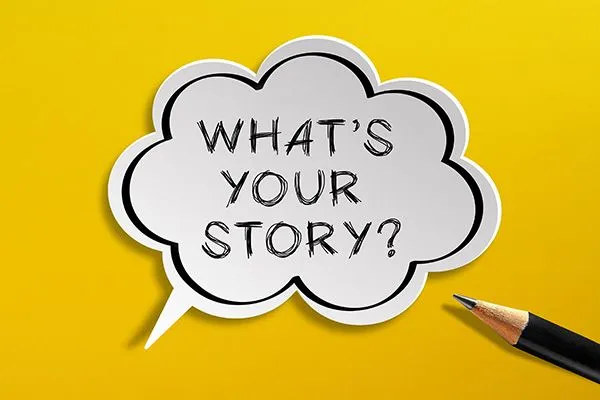
Let’s talk about goals and personal brand. As an outcome of doing the hard work to understand who you are and your being in this world and you want to start developing a voice, how much does the personal brand come into the conversation? It’s a goal like, “I want to tell my story but I also want to shape it. Not be untruthful but be authentic and truthful. At the same time, I want to shape the words that I choose and everything else so that an outcome of this hard work is the hopes and desires that I can build a personal brand that looks like X.” Is that part of the conversation?
Totally. We always start with values. What are the values of your brand? What is the value that you’re wanting to bring forth? Probably another piece that people get hung up on is, “What part of my story do I share? I’m a multifaceted human. I’ve got all these stories and experiences. What part fits?” If you remember at the very beginning of this episode, I shared how I worked in corporate for fifteen years. I ditched that to open a winery.
That part of my story resonates with a lot of people that I work with because they’ve all walked that journey of spending way too long in corporate, eventually ditching it and finding the courage to leave a high-paying career to go into entrepreneurship, which is not predictable in a lot of ways. It takes a lot of work. You don’t get to just go sit at a desk and collect a paycheck. They resonate with that and they’re like, “She did that. I can probably do that.” That’s a big part of my story. The accolades are also part of my story.
I was in North Carolina taking photos. I’m also a photographer. You wouldn’t necessarily know that if you landed on my website or listen to my podcast because that’s a part of who I am but I don’t bring that into my story. There is some shaping. It all boils down to what is the personal brand you want to create. What are the values? What is it that you’re here to offer within that personal brand? We then start to identify parts of your story that will fit well in establishing that personal brand.
I used to play soccer competitively. I don’t talk a lot about that. I love to travel. That used to be part of my story before. It’s not something that I share a lot about but I love to travel around the world. It’s a huge part of who I am. It’s figuring out what’s going to resonate with the brand that you’re trying to establish and then also knowing that you can evolve it.
It doesn’t have to be set in stone but we want to start with those values, who you are, what you stand for and what is that purpose. If you’ve done the purpose work and you know who you are and what you’re here to do, then it’s a matter of picking parts of your story that are going to help reflect that in your brand.
The book I’m writing is about the overlaps between life and business and brand is a business term that you can relate to life. For me, branding is a lot about trust and experience. Trust and experience come from what you discussed about values as being reflected in your “behaviors” as a business. That’s the experience part.
What comes into play is consistency, the positiveness of the experiences and everything. It’s what’s going to help develop the aspect of trust and experience. It’s one thing to be authentic and shape your stories to help develop the brand but you have to have, A) Consistency and, B) Allow time in that consistency to allow the trust levels to increase to have a strong brand. I’d be interested in your experiences but I don’t know that that’s well understood either.
It might be different in other industries but especially in the online coaching industry, there’s this overnight success piece. It’s like, “Here I am. I’m on social. I’m posting all these things and I’m established,” or I feel like, “Why don’t people know who I am? Why isn’t the trust there?” I’m reading the book, the Shoe Dog, the story of Nike. It’s how the story of Nike started.
It’s not like one day he decided to start the brand Nike and then all of a sudden, it’s this multimillion-billion dollar company that everybody knows from the swoosh or Just Do It. That takes time to establish and get that snowball effect. Consistency and cohesiveness in your message are important but patience is equally as important. I see so many brands that go and change their message or they go and tweak their stuff because it’s not “working” yet. They’ve only been doing it for weeks, 1 month or 6 months. Six months is like a baby business.
Consistency and cohesiveness in your message are essential. But patience is equally important to success.
Even after four years with our brick and mortar wine business, people knew the brand vintners but there were still a lot of people where I live locally that would walk into my store and go, “Are you new?” I thought I talked about us all the time. We were on the news, in the newspapers and we had billboards. We had it all. I was like, “You live in this area and you don’t know who we are,” but not everybody’s going to know. We don’t only been there for four years, which is still a baby business.
Speaking of travel, it reminds me of, “I’m coming to Atlanta. What hotels do you recommend?” I live in Atlanta. I don’t spend time in hotels in Atlanta. I don’t have a clue because I don’t have a need unless I have a lot of people coming to visit me in Atlanta and they’ve stayed in a whole bunch of hotels and given me that feedback. I could tell you a lot about hotels in Denver. I’ve spent a lot of time there in my life at hotels. In Atlanta, I don’t know. You can’t assume that just because they live in the area they’re listening to everything or visited the store before. You can’t assume that because you happen to be in a 2-mile vicinity of all these people.
Where do you think branding is going? I’m trying to push it along a little bit. We’ve heard about personal branding and business culture but not a lot of talk about personal culture, which needs to have a lot of discussion too, particularly with what we see in politics and everything else that’s going on. Where is technology and the changes, the effect of the pandemic and everything going on with branding? Any major changes you’re seeing?
AI is playing a role in changing the way we do marketing, writing, copy and all of that. As with any tech, there’s going to be two camps of people that are like, “I’m never going to use AI. That’s not real. If I use it to write copy or do branding, it’s not for me.” Even art, the graphics you can create and stuff like that. I’m in the camp so why not leverage and use the tech that’s available to us? I’m a huge proponent of we still need to create that personal connection. I don’t care what anybody says.

Human-to-human connection is important. We still need to create that in order to create experiences within our companies or businesses that are going to form that connection with people. That’s where my stance is in terms of the tech. Let’s use it if it’s going to help us. It’s like when the internet came out. Everyone’s like, “The internet? What is this thing?” Let’s use it for what it can offer us but let’s not forget that people want to feel emotion. They want that human connection more than anything.
I’ve been playing around with it a little bit and I found it to be a great time saver but not at the expense of what you said. It’s a tool like money and the internet. The detectives come along. You’re not going to use a screwdriver to pound a nail into the wall. Each tool has its characteristics. A screwdriver is terrible at pounding a nail on the wall. It’s great if you have a screw. With a nail, it’s terrible.
How do we use this tool that generates a certain value? We understand where it brings a tremendous amount of value and the not-so-great value. We’re going to avoid those areas. We extract what it does well and build that into our process without losing authenticity in the storytelling. To me, that is where the sweet spot is with it.
The thing with that is you still have to know what your story is. AI will only feed you if you’re using ChatGPT or any of those tools. It only is going to feed you as well as you feed it. You still have to know your story. You’ve got to know your brand and message. You’ve got to know who you are so that you’re able to then get what you need out of it if you want to support in writing an email or something like that. The person driving the ship still has to drive the ship. You can’t expect AI to write all your emails for you and then sound like you when you’re not providing them any context.

It’s under the same theme of, “Garbage in, garbage out,” the phrase they used to use when computers first got created in the late 1900s. It’s only as good as the stuff that you feed it. AI stands a better chance of less garbage in, less garbage out than the first computers that were created. We’re evolving and getting there but still, it doesn’t perfectly match what a human being does at this point.
People are starting to realize where AI is good and where it’s not. As it gets more popular, more people are using it. For a little bit of fun, when I was on your podcast, you mentioned to me that you’ve got a certain skill that not a lot of people have. It’d be fun to explore that and let the audience know and enjoy your skill.
It is with my intuition. I have the gift of the gab but I have a gift of being able to sense the energy behind the words. For example, if I’m reading an email from somebody, I can feel the state in which they were when they wrote it. I’ll have clients that will hand me an email and go, “This is my email to my list this week.” I’m like, “Where were you when you wrote that?” It’s devoid of any feeling, emotion or anything like that. There is this energetic impulse with the words that for me is something I can sense.
I’ll get another email from the same client that I’m like, “What state of mind were you in when you wrote that? How were you feeling when you wrote that?” There’s a different vibe or energy behind it, which is one of the big areas that I help my clients with. Anybody can put words on paper. You could feed an AI bot and it’ll put words on paper for you but for your people who are reading it, it comes back to storytelling, movies and all of that. It’s like, “Did you feel something when you walked out of that theater? Did you feel something when you put that book down?” It’s the same as with your emails. If there is not that feeling behind it, the energy behind the words that you’re using, then your audience is going to feel it.

A good friend of mine was on the podcast. Her business is specializing in that area so the emotions behind communication. She’s in our top ten in terms of episodes because of that reason. It’s not only storytelling but it’s communication and the emotions behind it. What is your tone? Her big thing is the tone behind things. What I’m hearing you say is you’re a good reader of the tone.
Words carry energy. If you’re using a lot of pain agitation, let’s say, to evoke emotion, there is a chance then that you’re going to get a lot of people that are stuck in maybe a pain cycle, potentially maybe a victim cycle. While we want to speak to people’s pain and struggle, for sure, most of my clients want to work with people that have more of a growth mindset who are wanting to evolve and expand.
If we’re only using pain agitation to communicate, we’re also impacting the type of people that we attract into our world. A big piece of how I help people is, “How do we balance that out in your story but also in all the content you’re putting out there so that you’re starting to attract the right people into your world or the people that you want to work with?”
We’ve got three things to accomplish. First of all, let’s do the reveal. Where is Kathryn Thompson from? Where do you think Kathryn Thompson is while she reveals to us where she lives?
When we first chatted, you nailed where I was from. I’m from Saskatoon, Saskatchewan, Canada.
It’s the Midwest part of Canada. It’s not a Toronto accent, Montreal accent or Vancouver accent. This is Midwest. It’s the term we use in the United States for the central part of our country. I don’t know if it’s the same in Canada but the only way I knew how to describe it was the Midwest of Canada. Item number two, if somebody wanted to reach out to you because they’re interested in your services, they want to hang with you or talk about wine, travel, photography or anything about yourself that you were vulnerable enough to review in this episode, what’s the best way they could reach out to you?
I hang out mostly on Instagram. @CreativelyOwned is my handle. You can come DM me over there. My website is CreativelyOwned.com. That’s where you can find me.
Here comes the last question. For the audience, as part of our top ten countdowns, we’re also bringing to you the answers that the guests on those top ten episodes are bringing and how they answered this question. We’re going to highlight that along with the episode itself. Kathryn Thompson, what do the words generate your value mean to you?
It’s such a beautiful question because years ago, I would’ve had a very different answer than I do now. To me, it means who we are and who we are in this world. It has nothing to do with what we do. Years ago, I was very much in the mindset of what I produced and the value I brought to the world was the work that I did. I had to do a lot of healing and transition around that because it had nothing to do with how good I was at my job or how well I was being paid or the jobs that I even had. We’re all these unique diamonds. It’s about living in that and being who we truly are meant to be.
Who we are in this world has nothing to do with what we do.
The phrase that comes to mind for me is that the value is already inherent. It’s already there. It’s not something you have to produce within yourself. You came into this world with it. The question is, are you living it out loud? Do you understand what it is? That’s why my definition of success for myself, as people on this show have read, is living my why out loud every single day. That’s what success is for me. I’ve been successful in understanding who I am and pulling out the inherent value that’s already inside of me out into the world to share it from that perspective.
Kathryn, I can’t thank you enough for taking the time and for being our last guest in Season 3, being the anchor and bringing it home per se for us. I hope the audience that has read this episode and the previous two for the badass female coaches that I brought you and them sharing their gifts and wisdom with you, get the golden nuggets, which is what we call on our show.
It’s all those pearls of wisdom through our conversations that you can take away from the storytelling and the conversation of the episode and integrate into your life so that you start pulling out that inherent value that’s already inside of yourself and start sharing it with the world through storytelling, your storytelling of who you are. The imagery that I use in my coaching is the process of doing that’s walking up the mountain. You get to the top of the mountain and take this big sphere of light that says, “This is who I am.” You hold it up to the world for the world to see and how you are doing it.
I’m going to see Zach for a little while. We’re going to take a break. It’s not truly a break. We’re going to be working on what are we going to do with Season 4. What changes do we want to bring to the show? What more value can we generate through the show? Yes, we won’t be releasing episodes. We will be bringing you our top ten by downloads for you to enjoy while we do take this break. We’ll be coming back to start Season 4 and bringing you a whole another season of great guests and conversations to help you with your life.
With that being said, take the time off for yourself, like Zach and I are taking time off for ourselves. Rejuvenate, recuperate and recharge yourself. Visit family, have great experiences and be in this world. Take some time out to be in the world and then we will see you again. Hit that subscribe button so you won’t miss out on the messages that were coming with the new episodes. I like to finish with words of gratitude for following Zach and me on this journey for Season 3.
Kathryn, I’d like to tell our audience, value doesn’t get generated in somebody’s life unless you share it and it lands in their lap. They have that opportunity, like with your podcast, to tune in to it. The value gets generated because they heard the words and the stories that occurred. If you don’t share it, then that opportunity doesn’t arrive in somebody’s life. We can’t encourage you enough to share Kathryn’s podcast and our show in an effort to keep generating value in the world. Kathryn, thank you once again for taking a valuable resource of yours called time and joining us here on the show. Take care.
IMPORTANT LINKS
- Kathryn Thompson
- Dominey Drew – Past Episode
- Kathryn’s Podcast – Past Episode featuring Andy McDowell
- Shoe Dog
- @CreativelyOwned – Instagram
- https://Podcasts.Apple.com/us/podcast/Be-The-Sought-After-Entrepreneur-Podcast/id1571530833

Kathryn Thompson is a Canadian-based entrepreneur who inspires people to use their stories as a way to create change in the world. She’s an award-winning marketing and communications expert with more than 15 years of experience. After growing one of her businesses to close to a million dollars in sales in less than four years, she sold it with a single email. Kathryn is now the founder of Creatively Owned, a marketing and communications firm that helps entrepreneurs use the power of words to create instant appeal for what they are selling.
